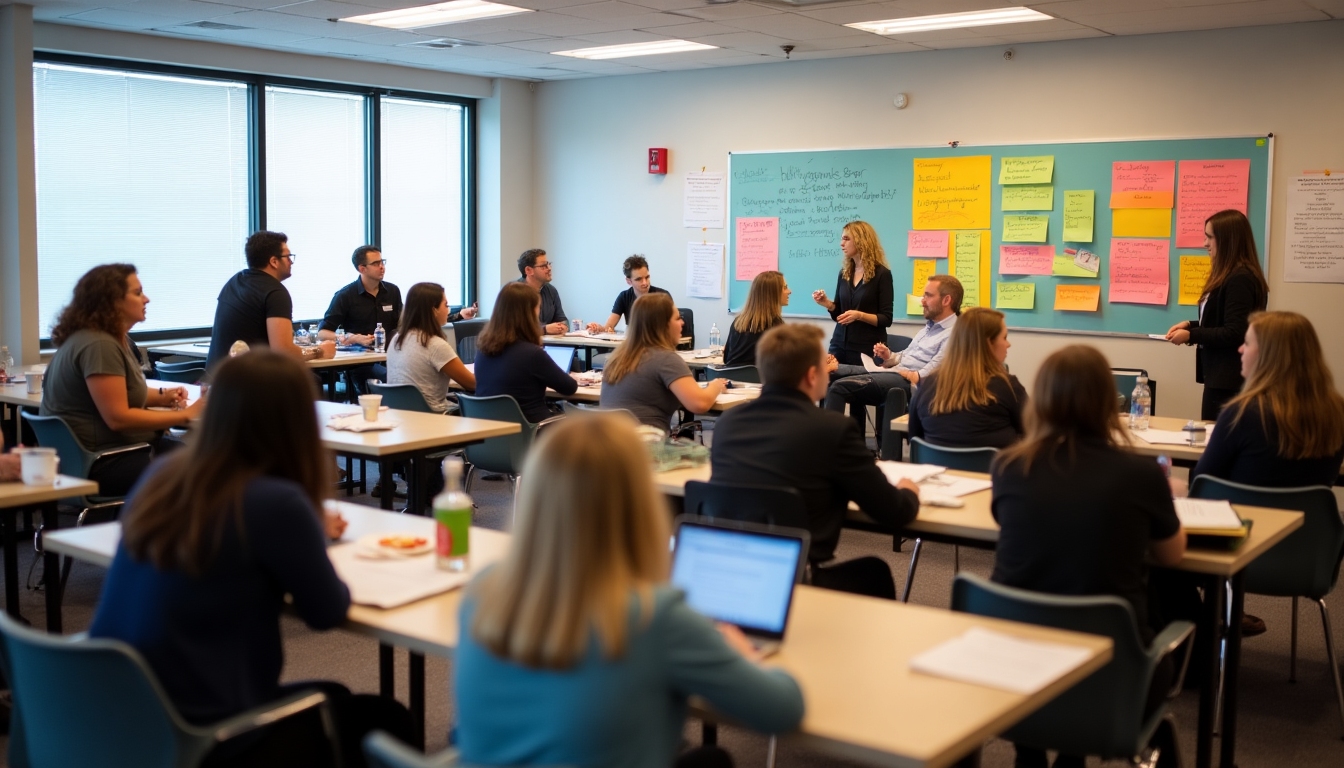Volunteer Training for Advocacy Work: Building Effective Change-makers
By , January 26, 2025
Empowering Change: Volunteer Training for Advocacy Work
Volunteering in advocacy work can be a transformative experience. It not only benefits communities but also enriches the lives of those who volunteer. This article dives into what volunteer training entails and why it's crucial for effective advocacy.
Advocacy work requires passionate individuals who are ready to drive change, but even the most dedicated volunteers need proper training to channel their enthusiasm into effective action. Whether it’s a campaign for environmental protection or fighting for equal rights, volunteer training for advocacy work equips individuals with necessary skills and knowledge. Here’s a comprehensive guide on what to expect and how to make the most of it.
The Essence of Advocacy Work
Advocacy is all about influencing decisions within political, economic, and social systems. Volunteers play an essential role in these endeavors by amplifying voices that need to be heard. They challenge the status quo and push for reforms that make a difference. To effectively engage in advocacy, one needs to understand various stakeholders, policy environments, and communication strategies.
Understanding Volunteer Training
Volunteer training for advocacy work focuses on educating participants about the cause, equipping them with practical skills, and motivating them to commit to long-term advocacy. Here’s a breakdown of what typical training might involve:
- Educational Workshops: These are sessions aimed at providing volunteers with an in-depth understanding of the issues at hand.
- Skill-Building Exercises: Training often includes activities such as public speaking, campaign planning, and digital advocacy strategies.
- Role-Playing Scenarios: To prepare for real-world interactions, volunteers may participate in role-play exercises that simulate advocacy challenges.
- Networking Opportunities: Connecting with seasoned advocates and peers can provide valuable insights and build a support system.
Personal Experiences in Volunteer Training
I once joined a training session for an environmental advocacy group. The experience was eye-opening. From learning how to craft compelling messages to understanding legal frameworks, every aspect of the training was designed to empower us. The interactive sessions with experienced advocates were particularly inspiring. They shared how small actions lead to significant impacts, motivating us to stay committed.
Practical Tips for Volunteers
- Stay Informed: Keep up-to-date with the latest developments related to your advocacy cause. This can involve following legislative changes or understanding public sentiment.
- Engage in Continuous Learning: Skills like effective communication can always be improved upon. Look for online courses or workshops.
- Network Actively: Building connections can open doors to new opportunities and collaborations.
Table: Key Components of Volunteer Training
| Component | Description |
|---|---|
| Educational Workshops | Provide knowledge on advocacy issues and strategies |
| Skill-Building Exercises | Develop core skills necessary for effective volunteering |
| Role-Playing Scenarios | Simulate real-life advocacy challenges |
| Networking Opportunities | Connect with peers and established advocates |
Why Volunteer Training Matters
The impact of trained volunteers cannot be understated. Training helps ensure that volunteers act responsibly and effectively. It also boosts their confidence and effectiveness in advocacy work, turning their passion into tangible outcomes. Whether you're looking to join a protest, write persuasive grant applications, or run community workshops, training lays the foundation for success.
Common Challenges and How to Overcome Them
Volunteer training is not without its challenges. Limited resources, diverse participant backgrounds, and maintaining motivation are common hurdles. Here’s how to tackle them:
-
Resource Constraints: Opt for online training modules and community partnerships to maximize reach.
-
Diverse Backgrounds: Leverage the unique perspectives of volunteers to enrich training sessions.
-
Motivation Maintenance: Recognize efforts and celebrate small victories to keep the team engaged.
Final Thoughts
Volunteer training for advocacy work is a vital stepping stone to becoming an effective advocate. It aligns purpose with action and ensures that the energy invested by volunteers is used to its fullest potential. By focusing on education, skill development, and networking, you can position yourself as a change-maker in your community.
For more insights, check out our related articles below.

Recommended Readings
- How to Start a Community Advocacy Group
- Networking Tips for Advocacy Volunteers
- Building Effective Campaigns: A Volunteer’s Guide
Volunteer training plays a critical role in any advocacy movement. The time and effort invested not only enhance the effectiveness of advocacy campaigns but also enrich the volunteers themselves, creating a ripple effect of positive change. Embrace the challenge, enrich your advocacy skills, and become an agent of change in your community.